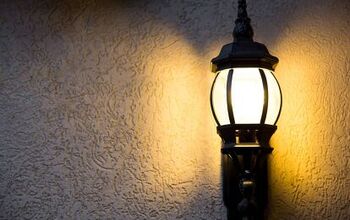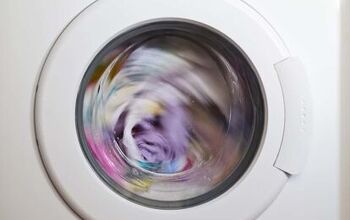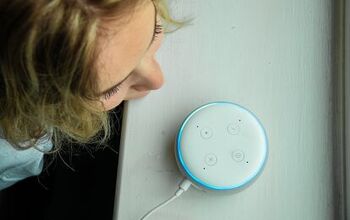How Long Do Oranges Last? (And The Best Ways To Store Them!)

Oranges are an easily portable sweet slice of heaven, packed with flavor and nutrients. They are a good source of fiber, calcium, and vitamins A and D and give us many health benefits. Keeping them fresh long enough to enjoy them can be challenging, though: how long can oranges last before turning bitter?
Oranges have a general shelf life of 2 to 3 weeks, but preserving them involves a lot of different factors. Getting the best flavor from oranges depends on the harvest date, their size and physical condition, and storage method. The right combination of preservation techniques can extend an orange’s freshness by several more weeks.
Benefits of Eating Oranges
Oranges are a favorite snack of all ages because they’re easy to eat just about everywhere. You can grab a fruit, peel, and eat it immediately on the spot with it perfectly sectioned on the inside. Popular orange varieties include Navel, Valencia, and Cara Cara, as well as their smaller cousins tangerines, mandarins, satsumas, and clementines.
Oranges contain Vitamin C, good for boosting immunity, fighting anemia and free radicals, and regulating collagen and cortisol production. In addition to Vitamin C, oranges also provide Vitamin A, calcium, potassium, fiber, and antioxidants. Oranges also are good for folate, a nutrient especially important for pregnant and nursing mothers and their babies.
With any food, too much of it can potentially cause health problems, no matter how healthy it is for us. An overdose of the vitamins and minerals in oranges can contribute to nausea, diarrhea, weight gain, and kidney damage. Additionally, they can block the positive effects of certain medications, and the citric acid aggravates acid and gastroesophageal reflux (GERD).
What to Look for in an Orange
Small oranges typically make for the tastiest fruits: they tend to be sweeter and juicier than their larger counterparts. But you also want to look for other physical characteristics to ensure your oranges are good and safe to eat. It’s a smart idea to check the following properties when selecting and buying oranges for consumption.
Visual Appearance of Oranges
Color is a good indicator of freshness, although it’s not quite as obvious as you might think. Of course, orange is the fruit’s color, so fruits that are orange on the outside are considered ripe. However, green orange rinds do not necessarily mean unripe fruit; some fruits ripen before the outside fully changes color.
The best orange to select is one with an intact and unblemished exterior. Bruises and breaks in the outer rind allow the fruit to ripen faster, so it’s best to avoid those. Also, you should see the pores on the rind surface–if you don’t see them, it’s not quite ready to eat.
Breaks in the outer rind can also indicate that they’ve been “pre-sampled” by insects and wildlife. Additionally, soft spots can indicate rotting or mold development on the fruit. This is another excellent reason to closely inspect your oranges as you select them.
Firmness and Peel Texture of Oranges
Since color is not always the strongest indicator of ripeness, you’ll have to use other methods to examine your oranges. The rind color can be a bit imperfect and uneven without affecting the fruit’s freshness. Out of the ordinary discoloration, spots, or even mold can render an orange inedible, so it’s best to avoid those.
Additionally, squeezing them for firmness is a good way to determine how ripe or rotten the fruit is. A light but firm squeeze will let you know if your orange is good for consumption. A little resistance makes for a quality fruit, while a soft or mushy means it’s past its prime.
Smell of Oranges
The bright, citrus scent of an orange is one of the most recognizable and appealing fragrances imaginable. That telltale scent is a sure way to tell if an orange is suitable to eat. Any souring, harshness, or complete lack of that smell usually means the fruit is no good.
Determining the Shelf Life of an Orange
Experts set the general average of an orange’s fresh time at about two to three weeks after you get them. Determining this lifespan depends a lot on the harvest date and the sell-by date provided by the seller. The longer the period between picking and shipping the fruit, the shorter time it will hold its freshness.
Best Way to Store Oranges
Most people store oranges in a bowl on a kitchen table or countertop, so they’re easy to grab and eat. This is a good option if you and your household eat a lot of oranges in a short period. However, the fruit bowl may not be the best choice for keeping your oranges fresh for the long term.
Storing Oranges in a Cool Place
Keeping oranges longer than a few days requires storing them in a cool, somewhat dry, and preferably dark place. The most common option is in the refrigerator, preferably in a crisper drawer designated for fruits and vegetables. The cold air helps to slow the ripening process so the fruit can last longer.
Another storage option is a fruit cellar or fruit pantry, a specially built cabinet or container to store the fruit. A fruit cellar keeps the fruit insulated from light and warmer temperatures without the aid of motorized refrigeration. Though it’s not quite as cold, it does keep excess moisture from prematurely aging your oranges.
Should You Store Oranges Wrapped or Unwrapped?
Oranges best retain their freshness by storing them with the peel intact. You need to eat peeled orange sections quickly or store them in an airtight container in the refrigerator.
To increase the freshness lifespan, you should wipe the whole orange dry and wrap it in parchment paper before storing. Placing the paper-wrapped oranges in an enamel pan also helps extend shelf life.
Any paper product is helpful for long-term orange storage; paper towels or napkins and cardboard boxes control external moisture. It is essential to keep both the fruit and the storage area cool and dry to maximize freshness.
Can You Freeze Oranges?
Ideally, the temperature for storing oranges should not be any lower than 10 degrees Celsius (50 degrees Fahrenheit). Lower storage temperatures can result in degraded fruit texture, vitamin loss, and bitter flavor–and ruin your oranges. Therefore, freezer storage for whole oranges is not recommended and is strongly discouraged for Navel oranges in particular.
However, preserving Valencia oranges and other varieties is possible. By peeling, sectioning, and preserving the fruit in an orange simple syrup, you can freeze oranges for up to six months. These will not have the same bright flavor as fresh orange quarters but are still enjoyable.
Maintain an Orange Tree
The optimal method of keeping oranges for a long time is growing and maintaining your own fruit tree. Naturally, fruit will continue to ripen and keep fresh the longer it remains on the tree. Properly cutting the ripened fruit at the stem ensures the best quality for eating.
Depending on where you live, a fruit orchard is likely to be impractical. However, you can germinate seeds to grow and maintain a small potted tree in your living space. With proper care, you can grow an orange tree like a houseplant and harvest it for fruit as a bonus.
Growing fruit trees from seed is a simple process; you can plant orange seeds without extended drying. Soak the seeds, plant them ½ inch deep in moist potting soil, and then cover the pot with plastic. Set the covered pot in a warm, sunny window to sprout, then maintain your tree with watering and pruning.
Related Questions
Is it okay to eat oranges before bed?
Despite their sweet, juicy taste, oranges are full of citric acid, which can have an adverse effect on your digestive system in general. People with gastroesophageal reflux disease (GERD) are especially sensitive and can develop uncomfortable heartburn that may prevent peaceful sleep. It’s best to consume acidic fruit at least 3 hours before bedtime or avoid them altogether.
Can you store oranges with other fruits and vegetables?
Oranges and other citrus fruits are largely unaffected by the proximity of other fruits and vegetables. However, some produce like apples and bananas give off high amounts of ethylene that speed the ripening process. It may be smart to limit storing oranges near these foods for maximum life, but it’s not a necessity.
What is the best season for oranges?
Oranges are available year-round thanks to a large number of growers. However, the ideal time of year to buy oranges–particularly navel oranges–is between November and January. Although oranges are delicious any time of year, natural growers release the best, sweetest, and juiciest fruits in this season.If you’re buying oranges out of season, you should still be sure to select the best ones possible. In season oranges tend to have richer tones than their out of season counterparts. Avoid choosing oranges that are too pale in color, have random, noticeable spots on the rind, and are too soft.
Related Articles

Stacy Randall is a wife, mother, and freelance writer from NOLA that has always had a love for DIY projects, home organization, and making spaces beautiful. Together with her husband, she has been spending the last several years lovingly renovating her grandparent's former home, making it their own and learning a lot about life along the way.
More by Stacy Randall




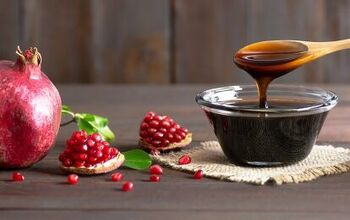





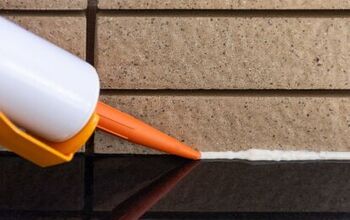



![How Much Weight Can a 4×4 Support Horizontally? [It Depends!]](https://cdn-fastly.upgradedhome.com/media/2023/07/31/9070333/how-much-weight-can-a-44-support-horizontally-it-depends.jpg?size=350x220)

